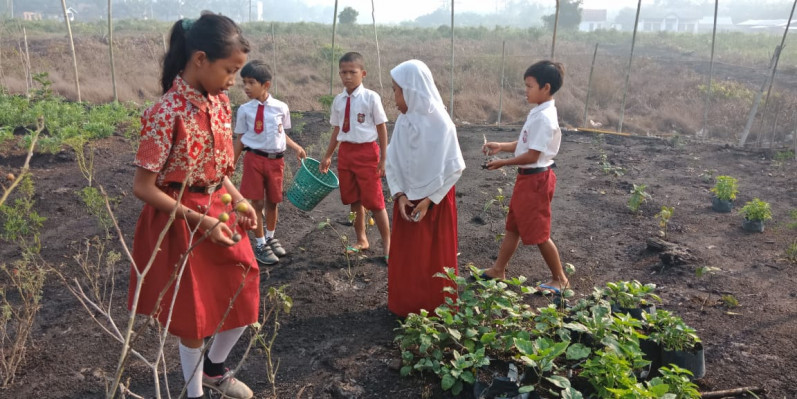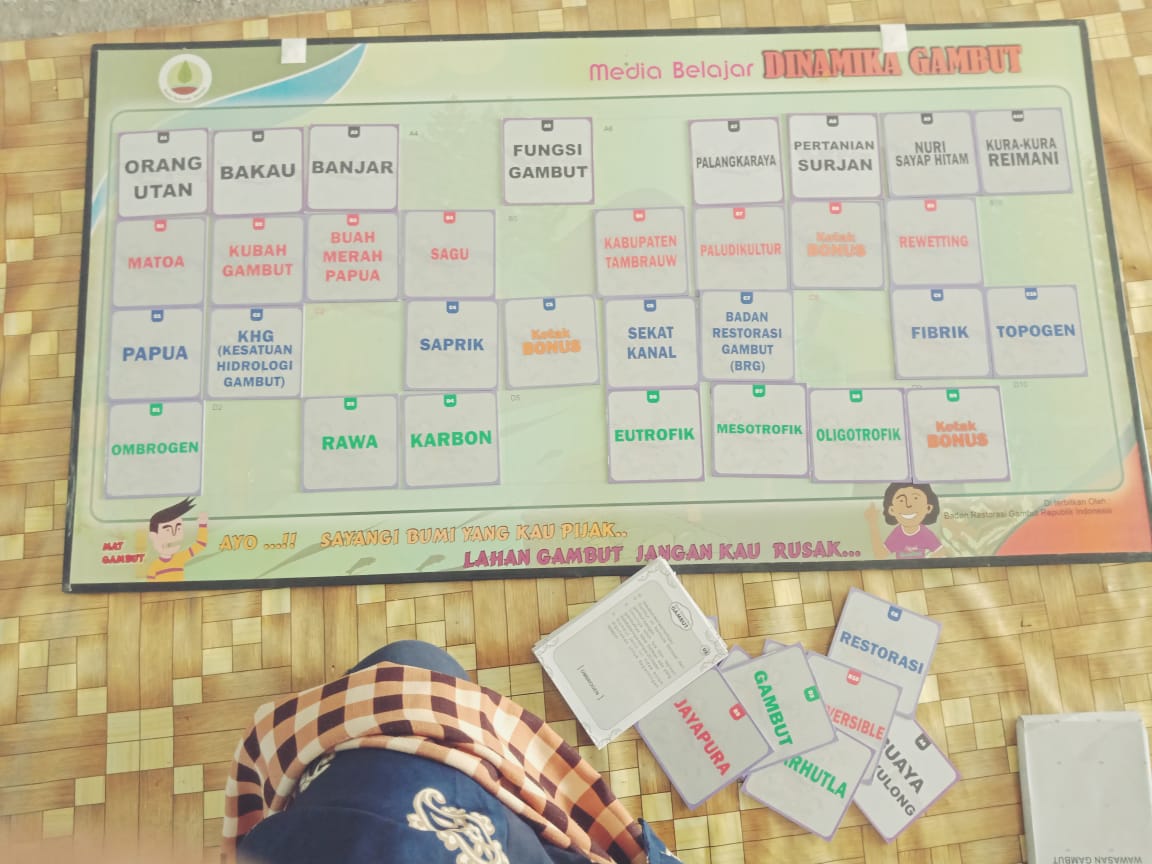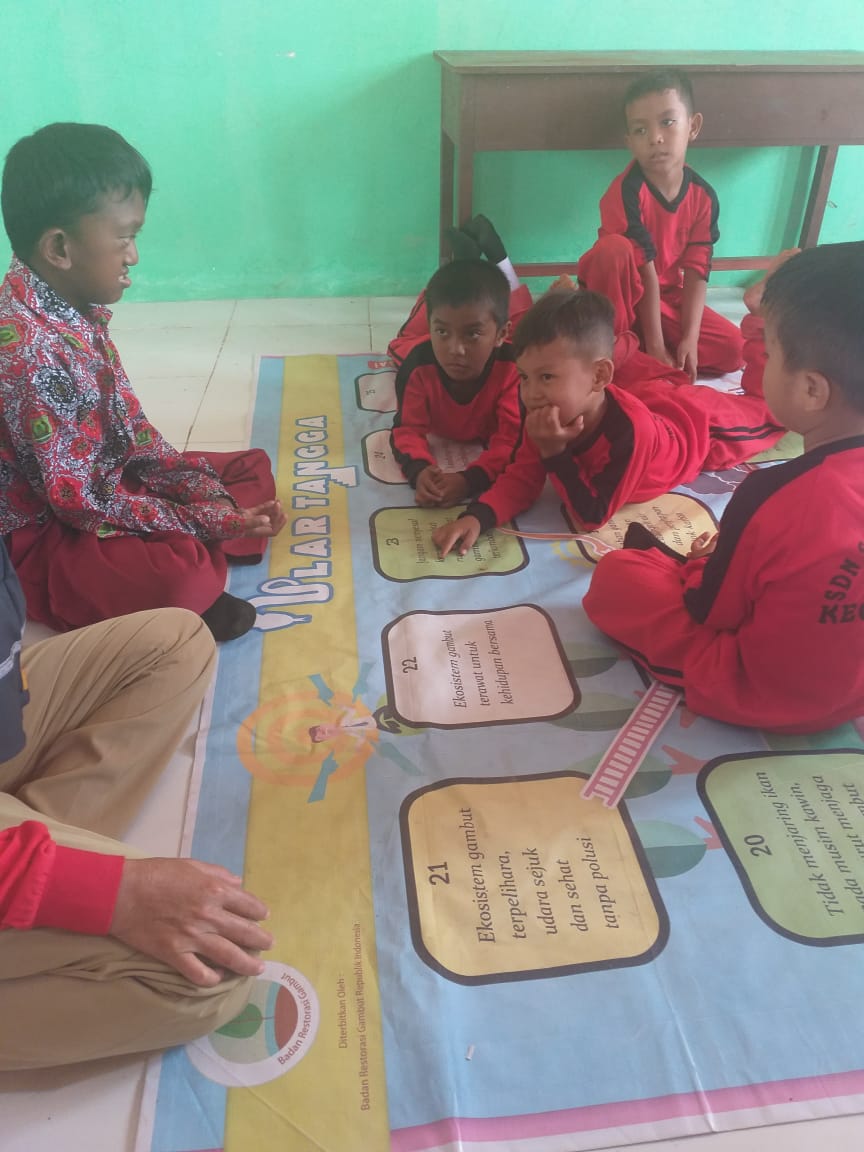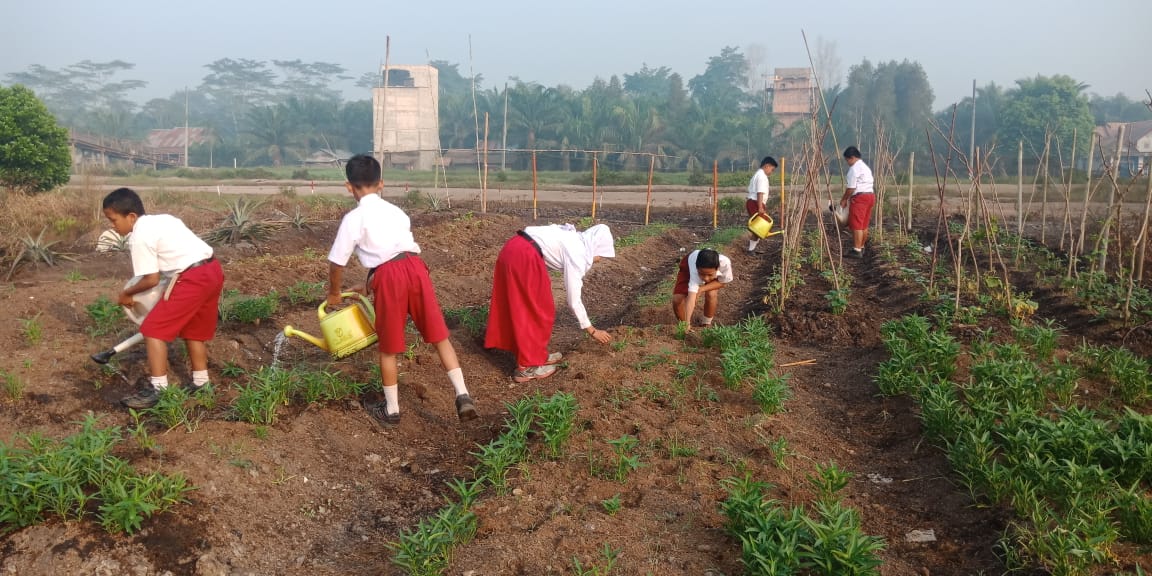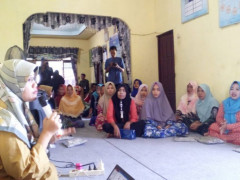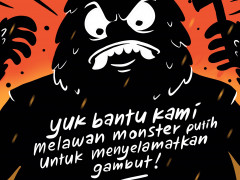Giving Hope to the Village
By Budi KurniawanIntroducing Peat Through School Education
Similar questions are always included in various subjects at SDN Suka Makmur, Lalan Musi Banyuasin District, South Sumatra.
For example, the first and second-grade students are introduced to terms related to the peatland environment by asking them to write the names of flora and fauna, such as crocodile, fish, peat, grass, roots, and other terms.
To further increase their love for the environment, SDN Suka Makmur also introduced an environmental-themed snake and ladder game in their curriculum.
This game is similar to the regular snake and ladder game. However, there are environment-related questions that children need to answer to climb the stairs or to prevent them from falling down the stairs.
For example, if the token that the children are playing is placed on a number with a ladder on it, they would be asked to mention a good environmental conservation practice. If the answer is considered to be correct by their friends, then the token can be brought up the stairs.
This snake and ladder game is an additional learning media to train children about good environmental conservation practices, including peatlands.
“This kind of curriculum has been implemented for the past two years. I was very interested in trying to incorporate the curriculum because the area near our school had burnt. I want the children to learn from an early age and know the importance of protecting the peat and the environment,” said the Principal of SD Negeri Suka Makmur Armayeni early last month.
“Initially, I independently took the time to get more in-depth knowledge about peat, why it needs to be protected, how to manage it properly, and so on. Next, with assistance from the teachers, I packaged the material into lessons for the students. Even though there are no specific subjects on peat, we incorporated the peat-related lesson using the proper teaching aid in between the compulsory curriculum based on the students’ grade,” explained Ms. Yen, the principal's nickname.
Ms. Yen also shared a bad experience during the 2015 forest and land fires. At that time, the peat swamp around the school caught fire. As a result, the children could not go to school for more than two weeks and after that, the children's school schedule was determined by the haze conditions each morning.
The forest and land fires taught Ms. Yen, the teachers, and students at SDN Suka Makmur about the adverse impact of a damaged environment.
Since last year, the teachers and students have gained more understanding of the environment because they have started cultivating various plants in the school garden. The students will regularly visit the garden when they are entering or leaving the school and they could talk with their friends about the various plant species.
The 24 meter x 12 meter garden is a thin peatland that was previously filled with remnants of rummy, roots, and logs of various sizes.
"We cleared the land and cultivate it using organic fertilizer and household waste, after some time the land can finally be planted and used as a learning medium for students," said Ms. Yen.
In addition to cultivation, the students also received an explanation, via storytelling, on what they were doing. The children were asked to tell stories about the environment, nature, peat, fauna, and the plants they planted.
The schools and student settlements are located in oil palm plantation areas, which do not have a lot of plant species. This motivates the students to be more interested in other types of plants, such as vegetables and fruits. The students are also supported by the Village Head, who provided the land for the demonstration plot. The demonstration plot is a plot of land used as a place for learning about plants which were provided by the Village Head for the surrounding community, including the students.
The Head of the Musi Banyuasin Education Office, Musni Wijaya, appreciates the environmental education movement carried out in the school. In his opinion, ideas that are borne from experience are a critical learning process. Moreover, the Musi Banyuasin District also has a green and sustainable development vision and mission.
“Good practices like the one being carried out in SD Negeri Suka Makmur can serve as an example for other schools, especially regarding environmental education, which is part of the knowledge being taught in schools. We believe this initiative will be very beneficial in fostering environmental and natural conservation among the younger generation in the region," he said.
